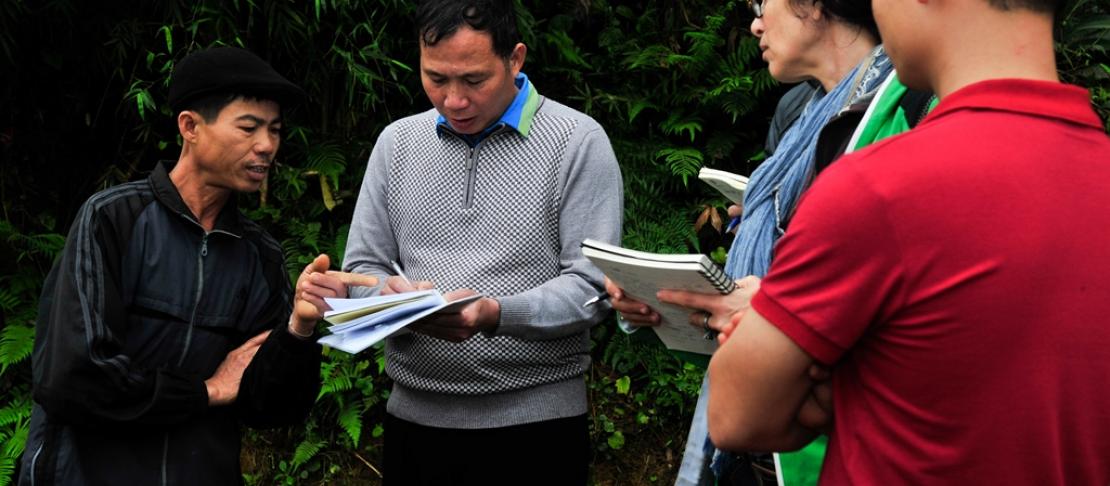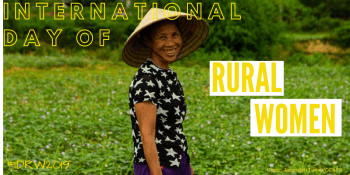Coordinating climate-smart agriculture across Southeast Asia

Improved coordination and synergy among projects and Climate-Smart Villages in Southeast Asia hoped for, after the coordination meeting held in Hanoi, Vietnam.
“A little change makes a big difference. One step leads somewhere,” said Dr Thelma Paris, a gender specialist with the International Rice Research Institute (IRRI), during the closing session of a coordination meeting with the CGIAR Research Program on Climate Change, Agriculture and Food Security in Southeast Asia (CCAFS-SEA).
Communities all over the world are faced with issues regarding climate change, agriculture and food security. Addressing these issues may seem like a daunting challenge at first, however it is to be hoped that Dr Paris’ statement holds true. CCAFS-SEA aims to make this difference by implementing projects and activities in three focus countries (Vietnam, Laos and Cambodia), as well as the Philippines and Indonesia.
Coordination among projects
With the twelve flagship projects and several local projects implemented by 11 CGIAR Centers, two international non-government organizations and different local partners, coordination among the activities should yield synergies and greater cross-learning across sites and projects.
In addition to the flagship and local projects, CCAFS-SEA has also established six Climate-Smart Villages (CSVs) in Vietnam, Laos and Cambodia. The CSVs would benefit from the coordination among the sites, as these are considered as convergence areas of different projects and activities.
To promote further coordination, the researchers and partners working on the different CCAFS-SEA projects were invited to a meeting in Hanoi, Vietnam, between 17-19 November 2015. Researchers presented updates on their different projects and discussed how each one could support the activities for a shared site.
Towards common outcomes and cross-learning
During the meeting, researchers discussed how to improve coordination and increase synergies among the projects and CSVs under CCAFS-SEA. This would contribute to achieving common outcomes across sites, for instance the wider adoption of a climate-smart technology such as agroforestry or alternative wetting and drying. Researchers identified areas of complementation, wherein the assessments for a project in a certain site could be used as well for another different project. Coordinators for the projects under the same flagship and for the CSVs were also identified. Each lead center or organization will in turn coordinate the projects or CSVs for a year.
Aside from achieving common outcomes, better coordination among the projects and CSVs would facilitate cross-learning across sites. With the sharing of the updates, the salient accomplishments and outcomes of the projects were more easily captured for future reporting. The researchers and partners were also able to identify gaps in the implementation of the projects and suggest alternative solutions.
Read more:
- Creating synergies with umbrella program on climate change in SEA
- The Africa CSA Alliance: path to implementation
- 2015: The year in advancing climate-smart agriculture
Amy Cruz is the junior communications specialist for the World Agroforestry Centre Philippines. She is also a communication consultant with the CCAFS SEA program.



